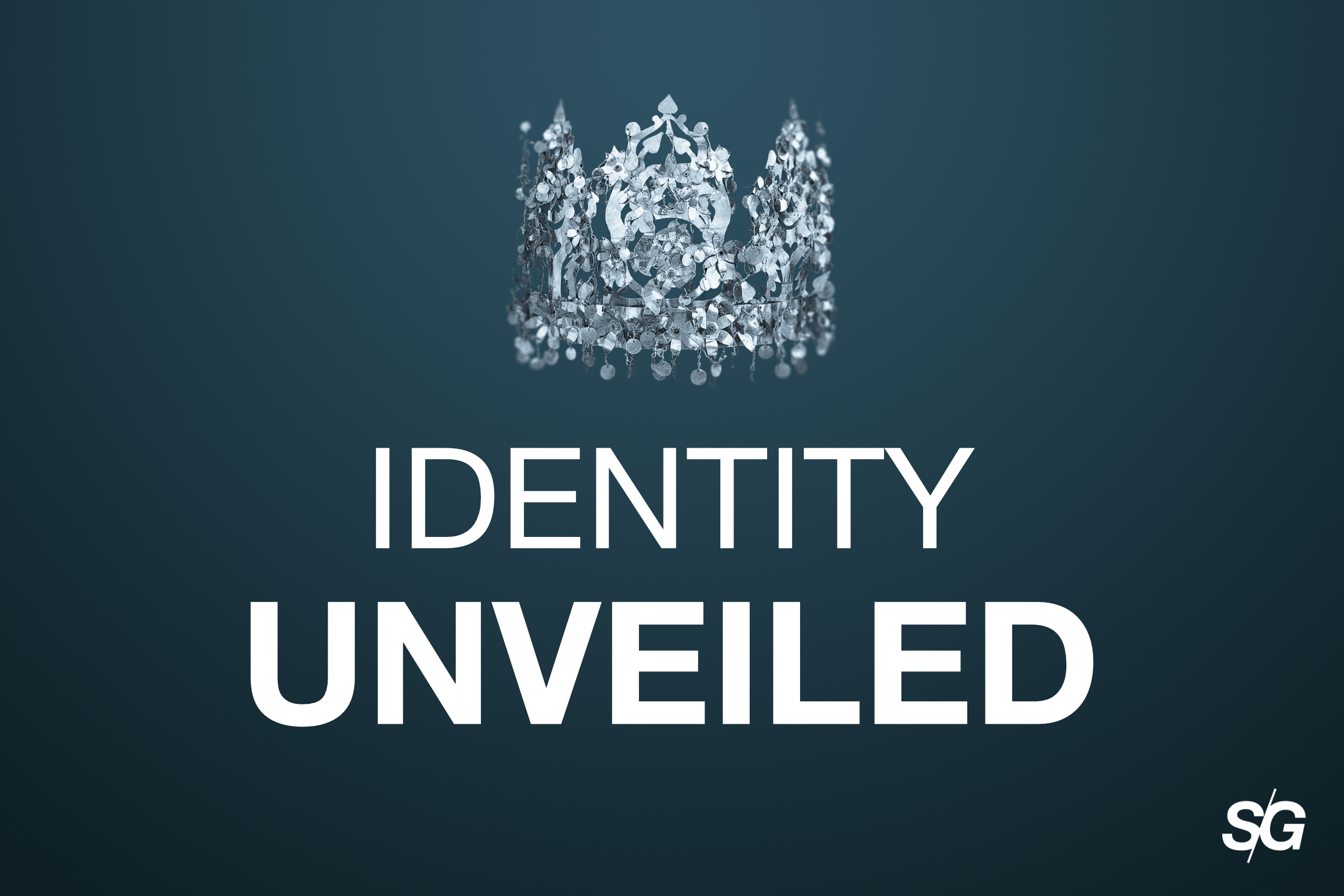Also Available On






Podcast Transcript
Frustration with a capital “F”. That’s how I have felt this year. Not because of COVID – even though that has been frustrating on multiple levels for multiple reasons – but because what I’ve witnessed and observed, close and far, with leaders.
Just because someone is in a leadership position does not mean they are actually good leader.
Position does not mean proficiency.
Able does not mean capable.
Control does not mean competency.
Decision does not mean decency.
I will not call out anyone, but I will acknowledge that in what I’ve seen this calendar year regarding leaders, I have a lifelong relationship with one, a geographically close relationship with some while remaining emotionally distant and don’t know well, but have seen how they conduct themselves. Another leader I have admired and have met personally on several occasions has not fallen well, due to a variety of factors: probably mishandling but also probable revenge.
Mixed with my frustration is also grief. My spirit grieves for what should be and what hasn’t been. The degree of relationship with the people that come to mind as I write also indicate whether frustration is intermixed with grief. Grief is reserved for those leaders that I’ve personally known or have had a longstanding relationship with. Frustration is reserved for the leaders that I am not personally acquainted with, but simply am affected by, either directly or indirectly.
On the outset, let me confess that I realize my enneagram type is the filter through I see what has occurred with these people. My primary values are truth and justice. I have a strong sense of integrity and responsibility. At my best, my type yearns for ethics, wise, idealistic, honest, and conscientious review of a situation. I take notice when people do not follow the rules and proper procedures or being dishonest. In addition, a mistake that harms the greater good is disheartening.
On the flip side, I tend to be critical, fixated on imperfections, and judgmental when the strengths of my type are carried to an extreme. I realize this and have to be on guard.
Others have asked, “Where is the forgiveness?” “Where is the grace?” My point is that forgiveness and grace can coincide with consequences. It’s not an ‘either/or’ way of looking at a situation, but a ‘both/and’. In counseling, a proper way of thinking is that we can always choose our behaviors, but we have no control over consequences. So, I do believe, consequences, forgiveness, and grace can co-exist. Case in point: King David.
My goal is that this podcast will be a truly balanced and fair look at what we want and look for in a good leader. This will no means be an all inclusive list, but traits and takeaways I’ve pondered for many months as my mind has individually tried to dissect that facts that have surfaced.
I found it interesting that a quick google search regarding skills for leaders does not include skill in the area of expertise. Perhaps that goes without saying, but I feel as though it’s worth mentioning.
Before I discuss the traits I feel are crucial to leadership, may we at least be balanced and acknowledge the following:
- Unless you are directly involved in the situation, I think it’s safe to at last acknowledge that you may not be privy to all the facts and knowledge about the situation. You may want to at least acknowledge that before jumping to assumptions, there may be pertinent information that you simply do not have at your disposal. The situation at hand may, in fact, have more information to substantiate your claim, but it may also be less than what you truly do know.
- Perhaps you should reserve your thoughts and opinions if you aren’t in the “inner circle” of all knowledge and facts, especially when it comes to sharing on any social media platform.
For the purpose of this podcast, I am specifically sharing thoughts about leaders- you either work for or affected by their leadership decisions, tactics, or even antics at the most or, at the least, you have known a leader in action to have a good, observable opinion about his motivations, his heart, and his core values.
Here’s my list, in no particular order, in what we look to and look for:
Part I
Accountability
Leaders who have no one in position “over” them are still accountable for the well-being of those “beneath” them – their team and the people they serve.
Someone recently shared the following quote:
“Power corrupts and absolute power corrupts absolutely.”
Or, if there is accountability, who has the authority to act and do hard things in the situation?
For people and places who actually do have accountability but refuse to take hard steps of action, then that says something about that particular layer of people in that rung of decision making. Now you have a problem. It’s not just the leader, but it’s the leaders to whom the leader is accountable who are not being accountable to the people to whom all these people serve and make decisions for.
Approachability
Does your leader have time to hear your concerns?
I’ve heard of those in authority making excuses for not taking time for those with concerns and complaints. If this is the case, the person who is trying to handle the concern biblically and one on one has a “takeaway” about the leader if they cannot be heard.
If your leader is approachable, do they actively listen to hear your concerns? Or does their position of control overrule and minimize your complaint? Something to ponder…
Boundaries
Responsible for, responsible to [accountability] vs. rogue
Rogue behavior is especially alarming when it is veneered in the veil of rationalization.
Humility
A good leader knows he or she wouldn’t be where they are if not for the people who put them in leadership or their team who supports them.
I’m reminded of my (adopted) father who, as a captain during WWII, earned the Silver Star for crossing the Rhine River under German attack before the close of the war, told one of his privates that he felt that all of the men under him were deserving of awards and accolades, not just he as the leader of company B. He was very much aware that he, the leader, had the support – trust, confidence, and abilities – of those surrounding him for the overall mission to be accomplished. It’s a two-way relationship with mutual trust and admiration: A respected leader respects.
Teachability
I believe it’s completely fair to say that not all leaders will be all in all. Specifically, every person – especially leaders – will be a mixed blend of strengths and growth areas.
A true and humble leader will be able to admit where they need to grow. I’ve also appreciated that my husband in his leadership role knows exactly where his strengths and growth areas are. He has a realistic and balanced view of himself and he leads and cares for others.
Because of this, he takes the time to learn from others who can speak to this area of his leadership role and provide insight and assist him with known areas of growth as well as blind spots.
Again, there are other things we look for in a good leader, such as trust, transparency, a confidence instiller, a steady mood, and a being a person who is a non-reactor, but a responder.
Part 2
Not only do we look for characteristics in a leader, but what do we look for when the leader falls?
1. First and foremost, ownership of wrongdoing.
Because no one and no leader is perfect, we look for a honest assessment of where they fell short. And in what ways and how far they fell short can be on a continuum of all kinds of different behaviors. It doesn’t necessarily have to be a moral issue. And, by the way, what encompasses a moral behavior? I think it includes more than sexual behavior. A leader can still act in an immoral way that calls into question issues of integrity or ethics, depending on the venue and values of an organization.
2. Second, we look for remorse in so far as they are responsible for what has actually occurred.
No bridge of reconciliation is built if rationalization is the stepping stone used by the disgruntled leader as they pave their way forward. There seem to be many a scapegoat these days, especially during COVID. If this is the proverbial path a leader takes, trust quickly dissipates.
3. Third, we look for an apology. What would all relationships look like if people – leaders or not – would simply acknowledge what they have done? Dr. Gary Chapman has written a book on the Languages of Apology. Each of us look for a different form of apology when an offense has occurred. Suffice it to say that an apology is a bridge builder, not a bridge burner.
No minimizing. No rationalizing. No blame.
The last category I would like to discuss is simply this. What if we have no control to control? I love Stephen Covey’s concept of circle of influence and circle of concern. Specifically, my circle of influence are simply those things over which I actually do have control, whereas my circle of concern are those things or people that I don’t.
For the purpose of this podcast, I have no control of the leadership concerns I have been privy to. This would be included in my circle of concern – it bothers me, but I have no actual control.
So what is a frustrated person like me to do?
Part 3
Promise: Peace in his Promise
Romans 13:1b (CEV):
“Only God can give authority to anyone, and he puts these rulers in
their places of power.”
This is NO way minimizing corruption or deceit. It is simply a reminder that in the scheme of a historical timeline, we have seen God use all leaders for his ultimate will to be accomplished. He hardened Pharaoh’s heart and he used King Cyrus for the release of his people out of Babylonian captivity.
He uses the leaders who acknowledge him and those who don’t. He uses leaders who lead well and those who don’t fall well.
Process: Trust his Timetable
God will not be mocked. Anything that needs to be brought to the light has a sovereignly divine timetable in disclosure.
Peace: Submit, Surrender, and a Straight Path for his Sovereignty
Proverbs 3:5,6 commands that we do not lean on our own understanding. And trust. Trust is surrendering all the facts that you in fact do know. Trust is the gap for all the facts which you don’t know. You may not know or be privy to all the angles in which God is working in the lives of those who are involved.
Leave it up to him. When you do, you acknowledge that his actions leave room for change to occur. He always works on multiple levels, with multiple people, in a multitude of ways. Trust leaves him room to intervene.
Take ownership for your own life. Are your motives pure or impure? Are you acting in an honorable or dishonorable way? Are you obedient or disobedient? Are you venting appropriately or inappropriately [a close circle to those to whom you take a concern or to a large circle?]?
When you do what is right, with integrity, and with right motives, he promises to make your path – your steps – straight.
Pray: Promise in his Power
I Timothy 2:1-2
“I urge then, first of all, that petitions, prayers, intercession and thanksgiving be made for all people – for kings and all those in authority, that we may live peaceful and quiet lives in all godliness and holiness” (emphasis mine).
As we all look to leaders and outcome this week, especially this week, may we be reminded of these four things: Promise, Process, Peace, & Pray.
Hopefully, this podcast has encouraged you regardless of the leaders who are near, far, close up, distant, local, national in any venue and who may or may not touch your life directly or indirectly.
Until next time, this is Shirene Gentry with the Identity Unveiled podcast.
About The Author

Shirene Gentry
Shirene is a Board Certified Master Christian Life Coach through the American Association of Christian Counselors and has professional memberships with the AACC and the International Christian Coaching Association.
